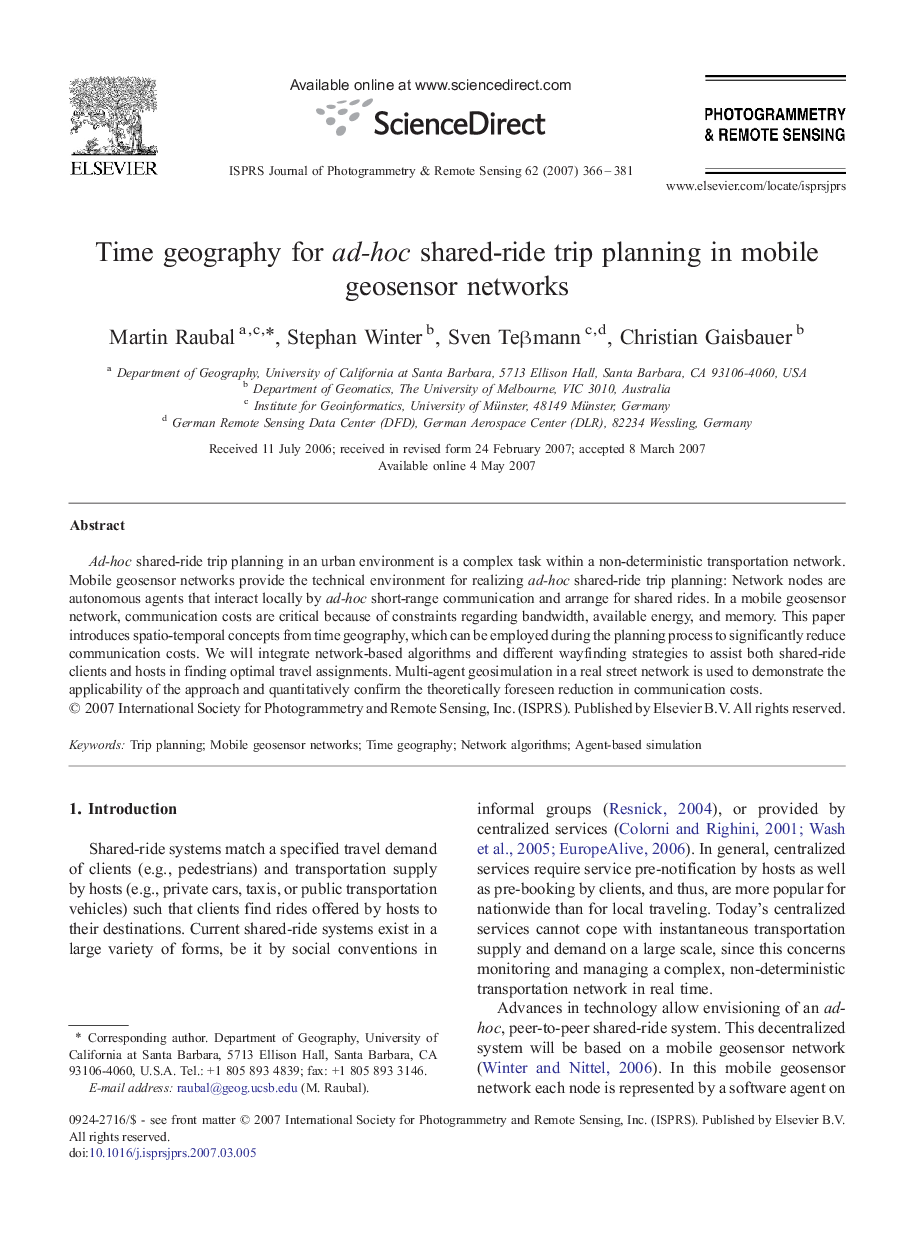| Article ID | Journal | Published Year | Pages | File Type |
|---|---|---|---|---|
| 556144 | ISPRS Journal of Photogrammetry and Remote Sensing | 2007 | 16 Pages |
Ad-hoc shared-ride trip planning in an urban environment is a complex task within a non-deterministic transportation network. Mobile geosensor networks provide the technical environment for realizing ad-hoc shared-ride trip planning: Network nodes are autonomous agents that interact locally by ad-hoc short-range communication and arrange for shared rides. In a mobile geosensor network, communication costs are critical because of constraints regarding bandwidth, available energy, and memory. This paper introduces spatio-temporal concepts from time geography, which can be employed during the planning process to significantly reduce communication costs. We will integrate network-based algorithms and different wayfinding strategies to assist both shared-ride clients and hosts in finding optimal travel assignments. Multi-agent geosimulation in a real street network is used to demonstrate the applicability of the approach and quantitatively confirm the theoretically foreseen reduction in communication costs.
